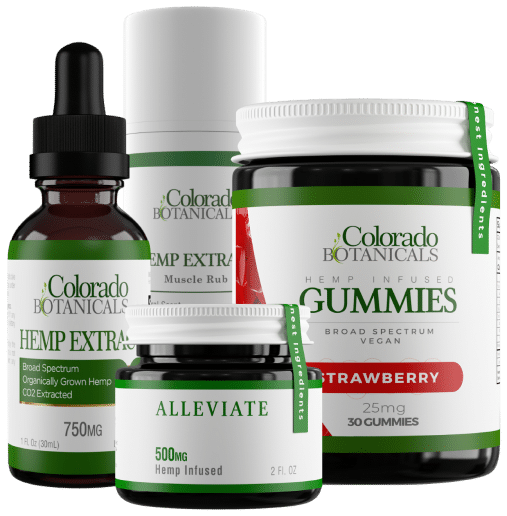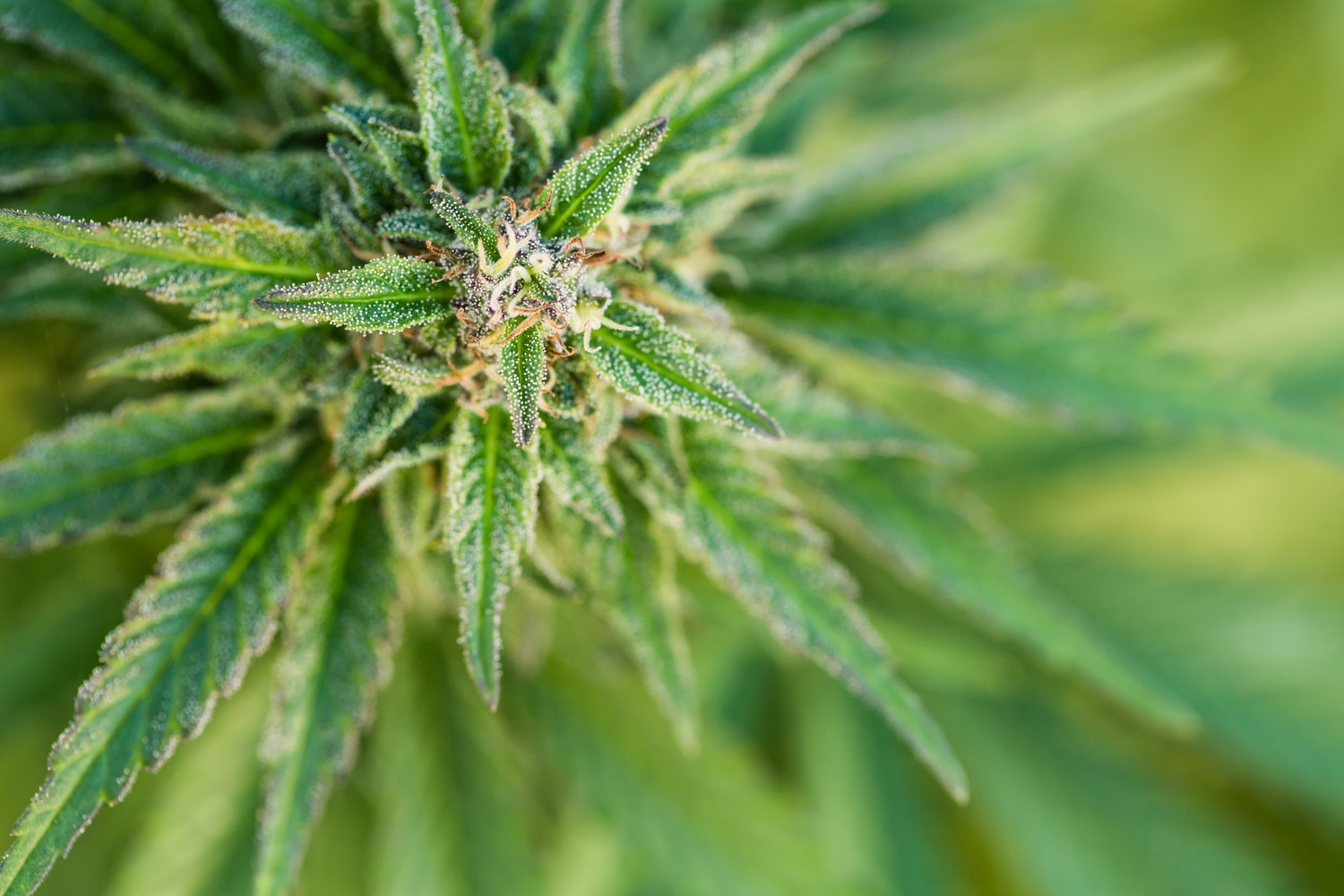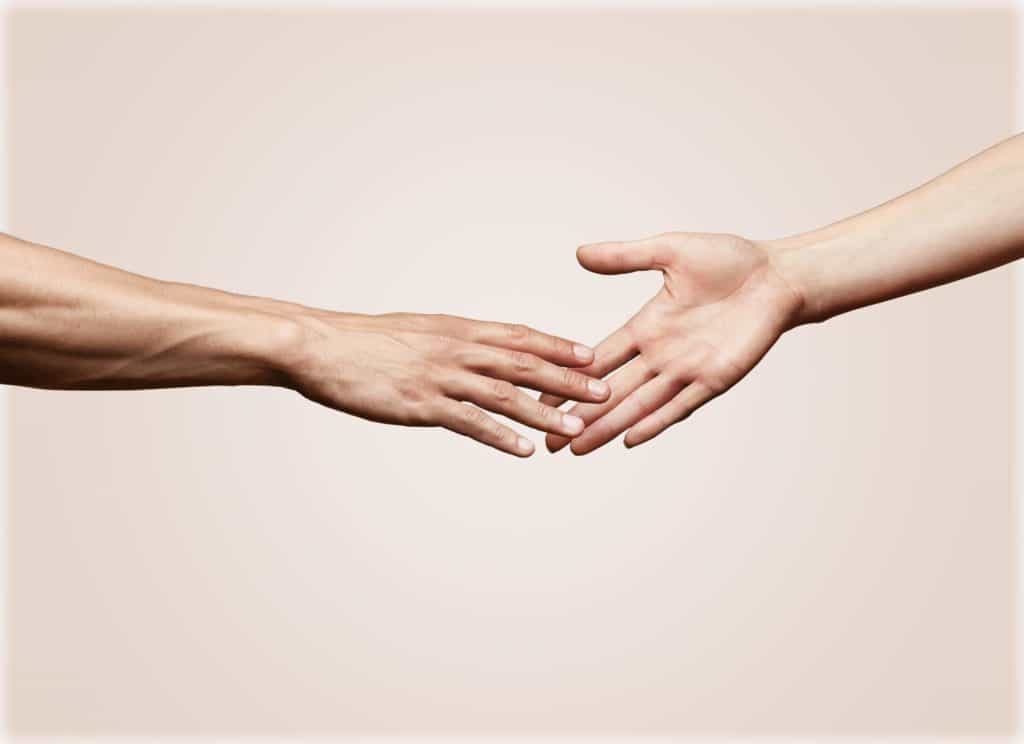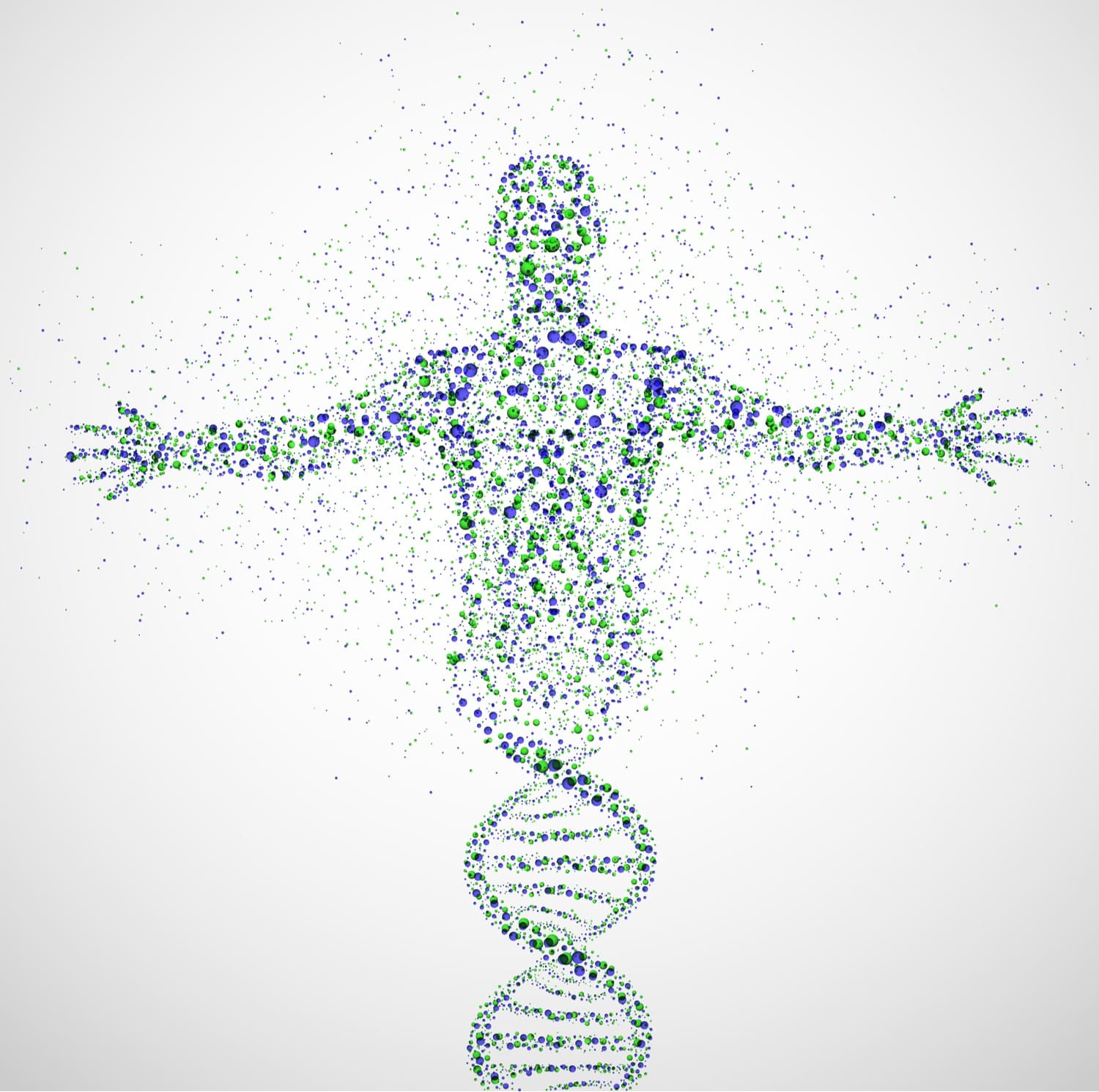Erectile dysfunction (ED) affects millions of Americans every year. But like many conditions affecting people every day, cannabidiol (CBD) may offer a solution – but there’s a significant emphasis on “may.”
Realistically, we don’t know how to use CBD or cannabis plant extract for erectile dysfunction. There are a lot of questions to answer before we know if CBD oil can help.
But it’s not all doom and gloom. The indirect evidence provides some clues on how to use CBD oil for erectile dysfunction or the role of the endocannabinoid system.
If you’re looking for help without conventional medication, it doesn’t hurt to see what CBD can do to help with libido, ED, sexual performance, sexual pleasure, and more.
How does CBD Affect Libido?
We don’t have much data on how CBD affects libido – if at all. So far, studies have shown mixed results supporting and doubting whether CBD can improve your sex drive.
For instance, a 2015 study by du Plessis et al. noted that heavy cannabis use among males led to an increased chance of ED. However, THC is a factor, making it difficult to determine if CBD, THC, or other compounds in cannabis are responsible for those adverse effects.
At the same time, a 2018 review in the Journal of Affective Disorders noted how CBD might have a calming effect, potentially reducing things – like performance anxiety – that hamper sex drive. We’ll get into a lot more detail on that later.
Does CBD Make You Last Longer in Bed?
CBD may help you last longer in bed – at least according to many anecdotal claims. There’s also no feasible way to collect that kind of data in a controlled lab setting. Theoretically, peer-reviewed research would rely on self-reporting.
CBD Oil for Erectile Dysfunction
Unfortunately, no peer-reviewed studies specifically focused on CBD oil as a potential treatment for erectile dysfunction. However, erectile dysfunction isn’t an isolated condition. Instead, it’s a consequence of other underlying issues, both physical and mental.
Early evidence suggests CBD oil can help mitigate some physical and psychological factors known to cause erectile dysfunction. We’ll cover those later.
What Research Says about CBD and ED
We all know that endocannabinoid (ECS) receptors exist in the central nervous system (CB1) and many areas of the body, including the immune system (CB2). However, a 2009 article from Annals of the New York Academy of Sciences found CB1 receptors in the testes of lab rats.
This discovery is incredibly relevant because CB1 receptors are primarily found in the central nervous system, whereas the peripheral areas mostly contain CB2.
So what does this mean for erectile dysfunction? It proves that the ECS’s reach extends to the reproductive system in rodents. If the same is true for humans, it may be possible to use CBD oil for erectile dysfunction.
According to a 2014 study published in Biomed International, cannabis has a long history as a sexual aid. People who follow the Ayurveda lifestyle – an ancient Hindu health approach involving herbal remedies, yoga breathing, and strict diet – claim the plant helps improve ejaculatory function and performance.
However, there’s no hard evidence to support these anecdotes.
A 2017 study in JCI Insight revealed CBD’s potential to help with blood pressure. However, it focused on arteries to the heart, not the reproductive system. Consequently, we can only infer from this existing research whether CBD oil can help with ED.
But if the same mechanism works with erectile dysfunction, CBD oil could help dilate reproductive blood vessels and increase blood flow to the penis. This effect may improve sexual function.
Does CBD Oil Increase Testosterone?
Research isn’t conclusive – at least not yet – but what we have so far doesn’t indicate a connection between CBD and increased testosterone.
A 2009 study published in the Journal of Toxicology and Environmental Health tested the effects of several cannabinoids on hormones in monkey and rat test subjects. Admittedly, it was heavily THC-focused. However, testosterone levels in monkeys remained unchanged. Rodents showed a decrease in testosterone levels at very high – and impractical – doses.
A 2019 review in the Journal of Applied Toxicology revealed more bad news. The article analyzed over 30 pieces of existing literature covering studies on men, rodents, monkeys, and invertebrates. The publication says CBD shrunk mammalian testes, impaired fertility, and reduced general blood hormone concentration.
They further say:
“Moreover, chronic doses of CBD have impaired sexual behavior in mice. From the studies identified in this review, it is possible to conclude that CBD has negative effects on the reproductive system of males.”
But the authors also say research is limited, calling for a deeper look at CBD’s potential benefits and risks to the male reproductive system.
Overall, those studies don’t indicate that CBD can increase testosterone – at least not directly, anyway.
But what about indirect routes? Could some of CBD’s benefits help increase or balance testosterone?
This brings us back to some information and studies we covered earlier. Specifically, CBD’s potential benefits against things that affect testosterone production – like anxiety and high blood pressure (hypertension) – can make a difference.
Overall, it’s best to proceed with caution before using cannabis or CBD for the treatment of any condition. With luck, the research could one day shed more light on the subject, but we’re a far cry from FDA-approved CBD treatments for hormonal deficiencies.
What Causes Erectile Dysfunction?
There are many causes of erectile dysfunction (ED), ranging from temporary problems to chronic health conditions. Furthermore, erectile dysfunction can be a symptom of something else, making it more than just a roadblock to your sex life.
Physical Causes of ED
The Urology Care Foundation provides an extensive list of physical reasons for why you may experience ED. Below are some common causes:
- High blood pressure
- Diabetes
- Impaired blood flow to the penis
- High cholesterol
- Heart disease
- Prostate issues
- Injuries to the spine or pelvic area
- Medicinal side effects
- Hormone imbalance
Psychological Causes of ED
You may feel healthy, but sometimes the root of sexual dysfunction lies beyond the physical causes of ED. According to the Urology Care Foundation, several emotional factors can contribute to ED.
- Performance anxiety
- Anxiety disorders
- Depression
- Stress from work, friends, or family
- Guilt or shame
- Relationship problems
Lifestyle Causes of ED
While we can’t control some of the things that trigger erectile dysfunction, there are many ways we can actively reduce the chance of ED affecting sexual performance.
- Obesity
- Tobacco use
- Drugs and alcohol
- Lack of exercise
How CBD May Help with Erectile Dysfunction
How can CBD oil help with erectile dysfunction? Based on what we see so far, the answer lies in treating some of the underlying issues responsible for ED.
Anxiety and Depression
Sexual health and mental health are intertwined. Even if you don’t have a chronic issue like anxiety or depression, those states of mind can still trigger erectile dysfunction.
A 2018 review in the Journal of Affective Disorders examined cannabis’ impact on depression, stress, and anxiety. Based on the research, CBD oil could reduce anxiety and depression for some individuals.
Keep in mind THC was a factor, making it difficult to determine which (if any) cannabinoid was responsible for the therapeutic effects.
Hormone Imbalance
Hormone imbalance can also lead to ED. But while a natural supplement like CBD may not – at least according to current research – impact testosterone, hemp-derived CBD may still impact other hormones.
According to a 2006 study from Endocrine Reviews, the endocannabinoid system and endocrine system are closely linked, so much so that CBD could alter hormones meant to reach other glands. This helps contribute to the body’s equilibrium or “homeostasis.”
Although theoretically promising, nobody has explored this connection’s impact on erectile dysfunction.
Links to Diabetes
Erectile dysfunction isn’t just a source of anxiety, stress, and depression that disrupts your sex life. Sometimes, it’s a sign of something more sinister.
According to the Centers for Disease Control (CDC), 34.2 million Americans have diabetes (1 in 10), while a staggering 88 million (1 in 3) are on the cusp of developing the condition (prediabetes).
We don’t recommend foregoing conventional treatment for diabetes because the research into CBD isn’t solid enough to take such a risk. However, a 2012 study in Obesity discovered that the ECS might play a role in blood sure regulation and insulin activity.
Although the research focused more on the endocannabinoid 2-AG and the ECS as a whole, they noticed that obese individuals have higher endocannabinoid levels. The authors theorized:
“Thus, the increased endocannabinoid levels observed in human obesity may constitute an initial compensatory mechanism to improve insulin function and to overcome insulin resistance associated with obesity.”
In plain English, this means the higher endocannabinoid presence for obese patients could be the first line of defense against insulin resistance and irregular blood sugar levels.
Links to Atherosclerosis
Atherosclerosis refers to the buildup of fatty plaque that blocks arteries and shrinks blood vessels. This condition reduces blood flow and – in time – potentially leads to life-threatening health complications.
But 2012 findings in the British Journal of Clinical Pharmacology are promising. According to this research:
“The potential ability of CBD treatment in humans to reduce the cardiovascular (as well as behavioral) response to stress could have significant effects on the development of atherosclerosis and hypertension [high blood pressure], which are known to be accelerated by stress.”
In other words, CBD’s possible two-pronged approach to cardiovascular and mental health may help reduce the chance of developing or exacerbating atherosclerosis.
Is It Worth Trying CBD for ED?
Yes, it is worth trying CBD for ED, just like it’s worth trying for any other symptoms or just as a nutritional supplement.
While studies so far show CBD may not help increase testosterone levels, many of its other reported benefits might help mitigate some of the mental and physical factors that lead to erectile dysfunction.
There’s promising evidence that CBD products can address many of the issues above, thanks to their relationship with the endocannabinoid system.
CBD Products to Try for Erectile Dysfunction
Although the Food and Drug Administration hasn’t examined cannabidiol for erectile dysfunction, CBD products are still widely available for you to try.
CBD Oils
CBD oils are pretty self-explanatory. You ingest a pre-measured dose and wait for the effects. However, due to the delay of 15 to 45 minutes, it’s not a viable option for instant results.
On the other hand, regular daily doses could help keep things like anxiety, depression, stress, and other ED-related health issues in check.
CBD Topicals
Many people use CBD creams for their possible anti-inflammatory and analgesic effects. However, there are other products besides simple creams and balms.
Some vendors offer sexual lubricants made with hemp-derived CBD. There’s no research about the effectiveness of these products, but anecdotal evidence suggests it helps increase sexual pleasure and improve sex life.
CBD Vapes
Vaping or smoking carries the advantage of virtually instant effects. However, we know nothing about how vaping CBD can directly impact ED. But again, cannabidiol’s other alleged health benefits can quickly address some of the underlying factors, like stress and performance anxiety.
How do I Use CBD Oil for Erectile Dysfunction?
To use CBD oil for erectile dysfunction (or anything else), you first need to discuss it with a doctor. If you get the go-ahead, gradually titrate the dose per the manufacturer’s instructions.
If you need help figuring out your ideal dose, Colorado Botanicals offers an excellent beginner’s guide that addresses everything you need to know as a new CBD user.
When to Take CBD?
When to take CBD depends on your needs. Some consume their dose in the morning, the evening, or split throughout the day. There’s no established rule, so experiment to see what works for you.
However, if you choose vaping or topicals, your CBD consumption will vary on an as-needed basis due to the instant effects. For instance, you might vape CBD when hit with a sudden case of performance anxiety.
How Long for CBD Oil to Take Effect?
CBD oil typically takes effect in 15 to 45 minutes.
Is it Safe to Take CBD?
It’s safe to take CBD oil in most cases. However, some people experience minor side effects that typically go away fast.
However, if you take any prescription medications, we recommend avoiding ingestible CBD products without medical supervision.
The Bottom Line: Does CBD Improve Sex Life?
There’s no denying that the cannabis plant has enormous potential, but a lack of evidence makes it difficult to learn how to use CBD oil for erectile dysfunction. But if you think CBD will instantly cure sexual dysfunction, erectile or otherwise, we’re sad to say the evidence so far doesn’t support that.
Still, CBD’s more established (but still unconfirmed) benefits can address many of the underlying problems that contribute to ED.
From mental health issues like stress, anxiety, and depression; to injuries or poor health habits, CBD could ease those contributing factors and improve your sex life.
However, the Food and Drug Administration isn’t eager to get behind cannabidiol. And not to sound like a broken record, but we need much more research to see how CBD oil can help – if at all.
Considering the ambiguity behind CBD’s relation to erectile dysfunction (if any), it’s best not to get too excited. Don’t start using CBD or any supplement without first taking medical advice from a doctor or other licensed health professional.
Sources
Carvalho, Renata K., et al. “The Effects of Cannabidiol on Male Reproductive System: A Literature Review.” Journal of Applied Toxicology, vol. 40, no. 1, 17 July 2019, pp. 132–150, 10.1002/jat.3831. Accessed 9 Nov. 2021.
“National Diabetes Statistics Report, 2020.” Centers for Disease Control and Prevention, 11 Feb. 2020, www.cdc.gov/diabetes/library/features/diabetes-stat-report.html#:~:text=34.2%20million%20Americans%E2%80%94just%20over. Accessed 10 Nov. 2021.
Chauhan, Nagendra Singh, et al. “A Review on Plants Used for Improvement of Sexual Performance and Virility.” BioMed Research International, vol. 2014, 2014, www.ncbi.nlm.nih.gov/pmc/articles/PMC4151601/, 10.1155/2014/868062. Accessed 9 Nov. 2020.
Cuttler, Carrie, et al. “A Naturalistic Examination of the Perceived Effects of Cannabis on Negative Affect.” Journal of Affective Disorders, vol. 235, Aug. 2018, pp. 198–205, www.sciencedirect.com/science/article/pii/S0165032718303100, 10.1016/j.jad.2018.04.054. Accessed 10 Nov. 2021.
du Plessis, Stefan S., et al. “Marijuana, Phytocannabinoids, the Endocannabinoid System, and Male Fertility.” Journal of Assisted Reproduction and Genetics, vol. 32, no. 11, 16 Aug. 2015, pp. 1575–1588, www.ncbi.nlm.nih.gov/pmc/articles/PMC4651943/, 10.1007/s10815-015-0553-8. Accessed 29 Jan. 2020.
“Erectile Dysfunction (ED): Symptoms, Diagnosis & Treatment – Urology Care Foundation.” Www.urologyhealth.org, www.urologyhealth.org/urology-a-z/e/erectile-dysfunction-(ed). Accessed 8 Nov. 2021.
Fasano, Silvia, et al. “The Endocannabinoid System: An Ancient Signaling Involved in the Control of Male Fertility.” Annals of the New York Academy of Sciences, vol. 1163, no. 1, Apr. 2009, pp. 112–124, sites.oxy.edu/clint/physio/article/theendocannabinoidsystem.pdf, 10.1111/j.1749-6632.2009.04437.x. Accessed 10 Nov. 2021.
Jadoon, Khalid A., et al. “A Single Dose of Cannabidiol Reduces Blood Pressure in Healthy Volunteers in a Randomized Crossover Study.” JCI Insight, vol. 2, no. 12, 15 June 2017, 10.1172/jci.insight.93760.
Motaghedi, Roja, and Timothy E. McGraw. “The CB1 Endocannabinoid System Modulates Adipocyte Insulin Sensitivity.” Obesity, vol. 16, no. 8, Aug. 2008, pp. 1727–1734, 10.1038/oby.2008.309. Accessed 10 Nov. 2021.
Pagotto, Uberto, et al. “The Emerging Role of the Endocannabinoid System in Endocrine Regulation and Energy Balance.” Endocrine Reviews, vol. 27, no. 1, Feb. 2006, pp. 73–100, 10.1210/er.2005-0009. Accessed 10 Nov. 2021.
Rosenkrantz, Harris, and Henry J. Esber. “Cannabinoid‐Induced Hormone Changes in Monkeys and Rats.” Journal of Toxicology and Environmental Health, vol. 6, no. 2, Mar. 1980, pp. 297–313, 10.1080/15287398009529853. Accessed 10 Nov. 2021.
Stanley, Christopher P., et al. “Is the Cardiovascular System a Therapeutic Target for Cannabidiol?” British Journal of Clinical Pharmacology, vol. 75, no. 2, 10 Jan. 2013, pp. 313–322, 10.1111/j.1365-2125.2012.04351.x. Accessed 10 Nov. 2021.









